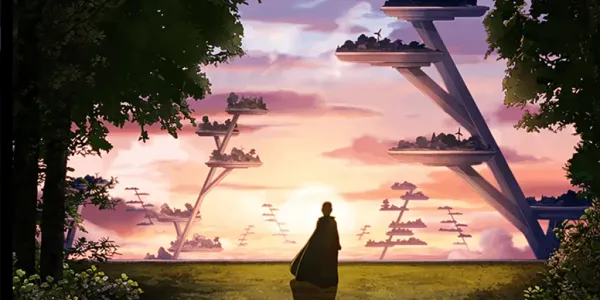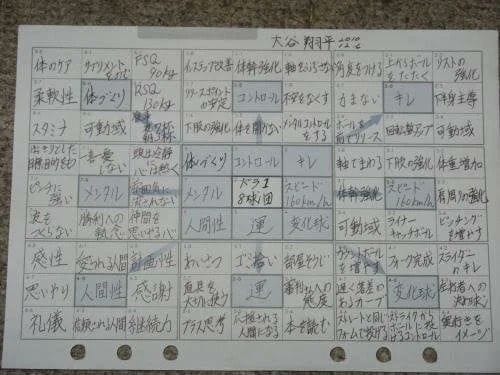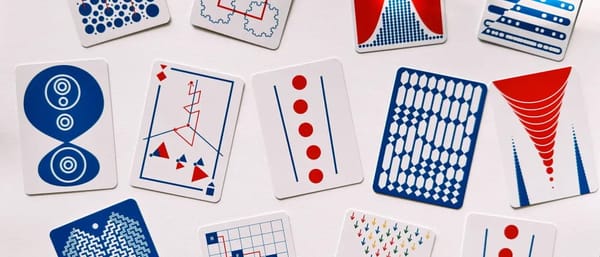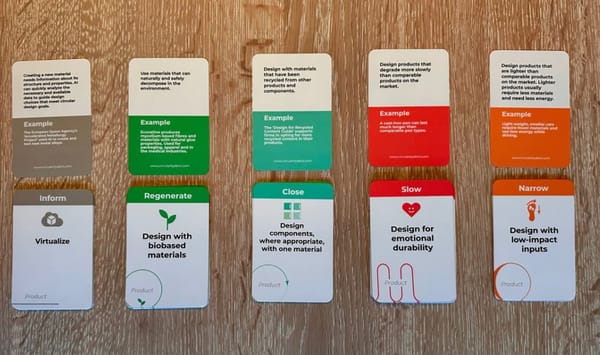№ 63 | Dreams and Disruptions Card Deck, Half-Earth Socialism, Bento, A Mathematician’s Lament (Video Style!), and Linchpins
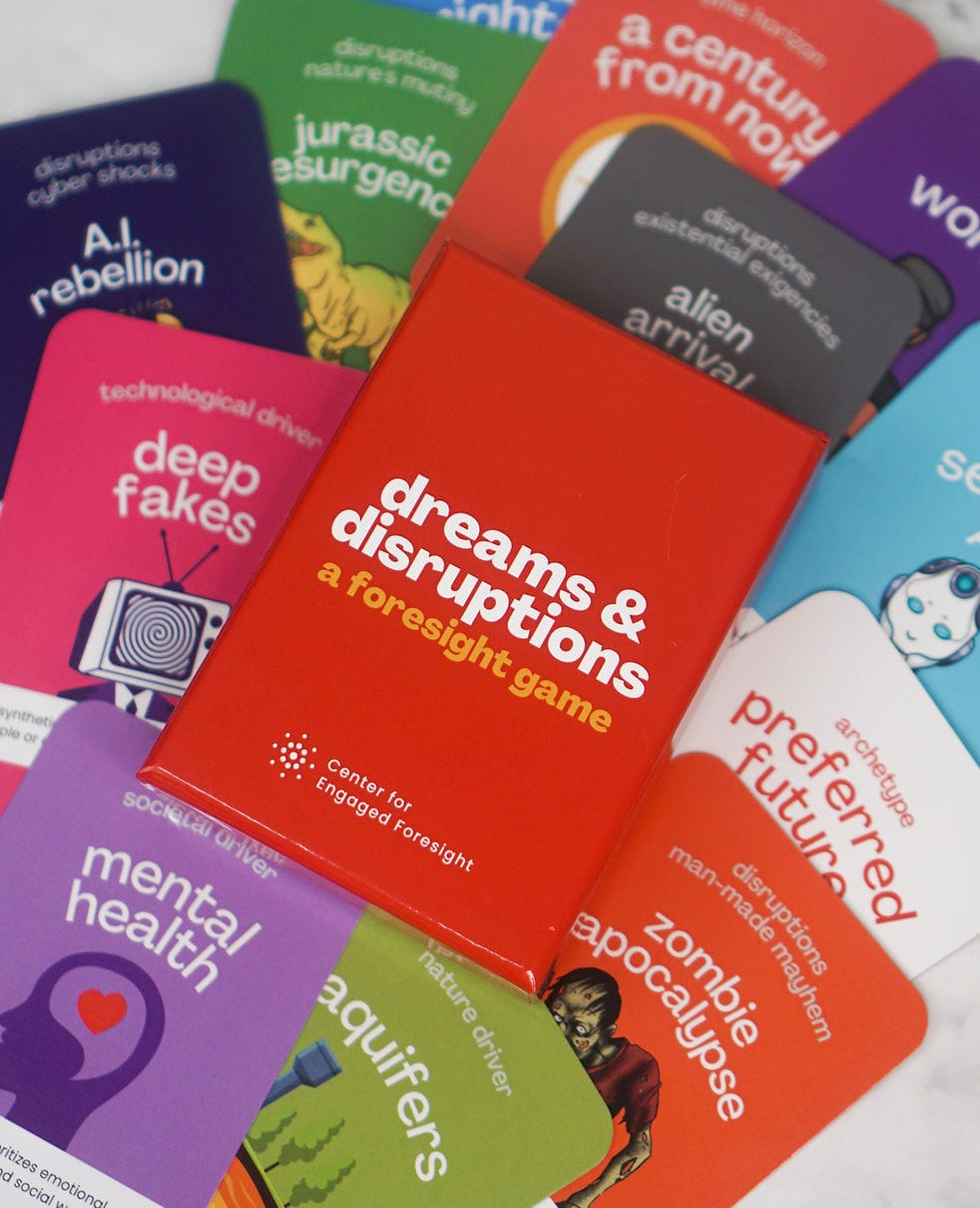
Dreams and Disruptions Card Deck
Lately, it feels like I’m seeing more of these futurist card decks. But, none of the other scenario-building activities include a zombie apocalypse or jurassic resurgence! 🤪 Dreams and Disruptions looks like it dials up the imagination up to 11.
Build scenarios with a twist of randomness, embrace diverse voices, and tackle disruptions head-on. With a dash of leadership, a pinch of anti-fragility, and a whole lot of imagination, this game will challenge your assumptions, immerse you in contradictions, and inspire you to dream big and shape anti-fragile tomorrows.

Hey, want to learn more about Dreams and Disruptions?
The 4th Friday of every month month, you’ll likely find me at a Cardstock meetup. If you’ve not heard of Cardstock, it’s “an online monthly meetup for anyone who uses cards in their work, whether working with their own ideas, facilitating for others, making connections in complex information, or just playing games.” Brilliant people. Always fresh and inspiring conversations. We also tend to all leave a bit poorer, with the requisite book and card deck purchases that tend to follow.
Anyway, in our next meeting on Friday, Feb 23rd, we’ll be chatting with the creator of Dreams and Disruptions: A Foresight Game. Maybe I’ll see you there? Here’s more information about Cardstock.
Speaking of future scenarios…
Half-Earth Socialism
I spent my Saturday afternoon saving the planet!
Half-Earth Socialism is a simulation game, where you play the lead planner of a global planning authority (following an imagined socialist revolution in 2022).
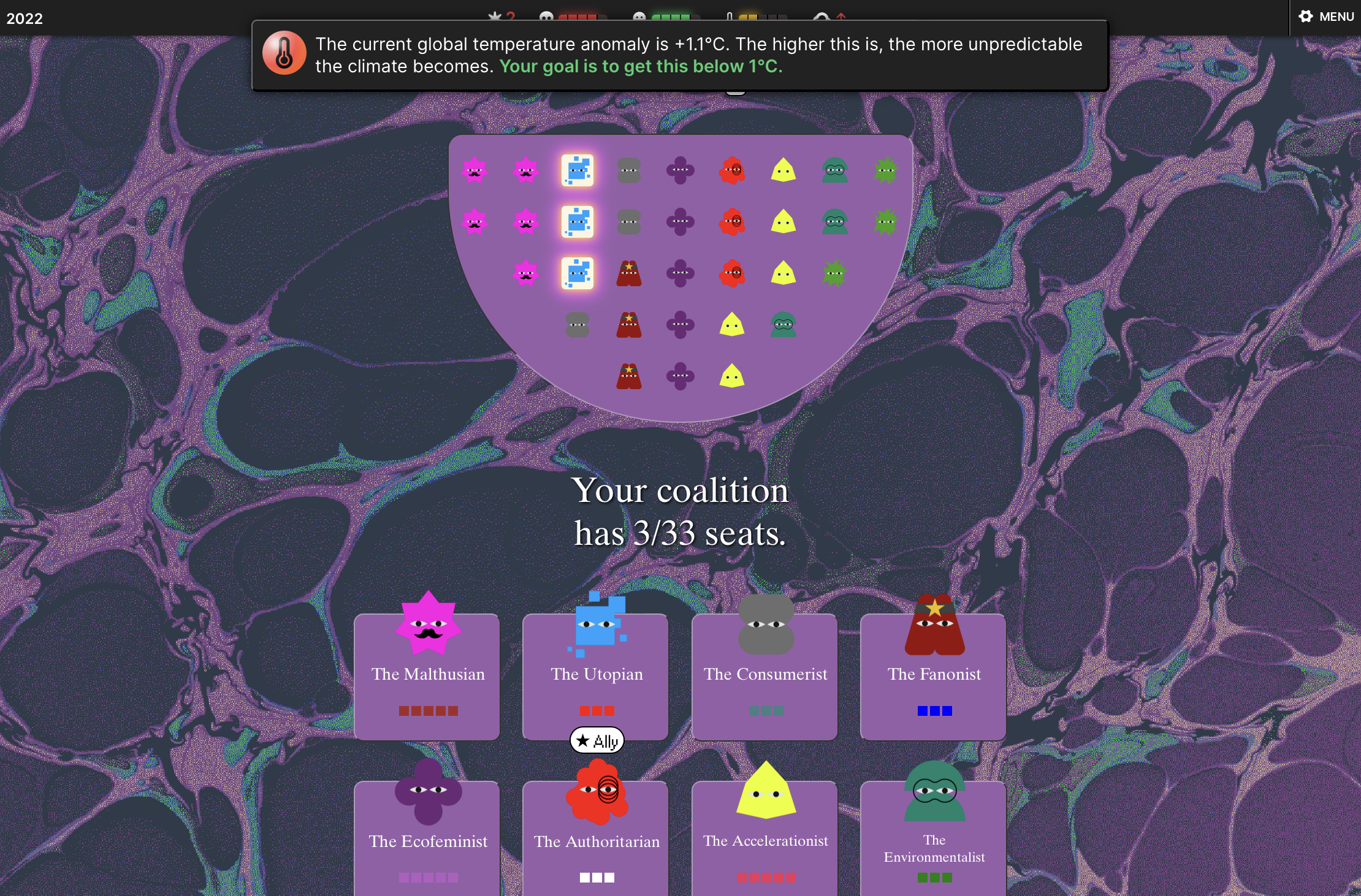
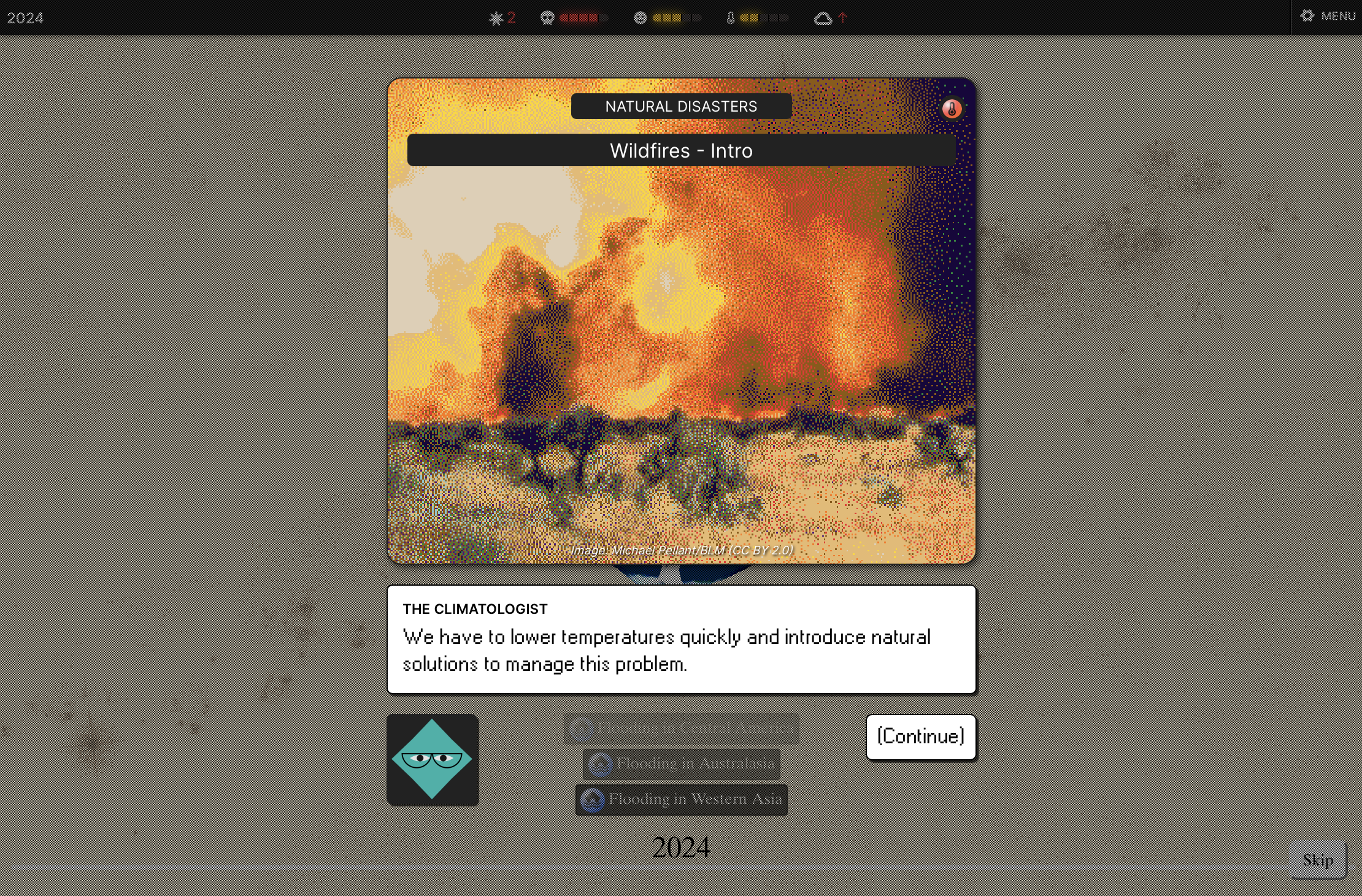
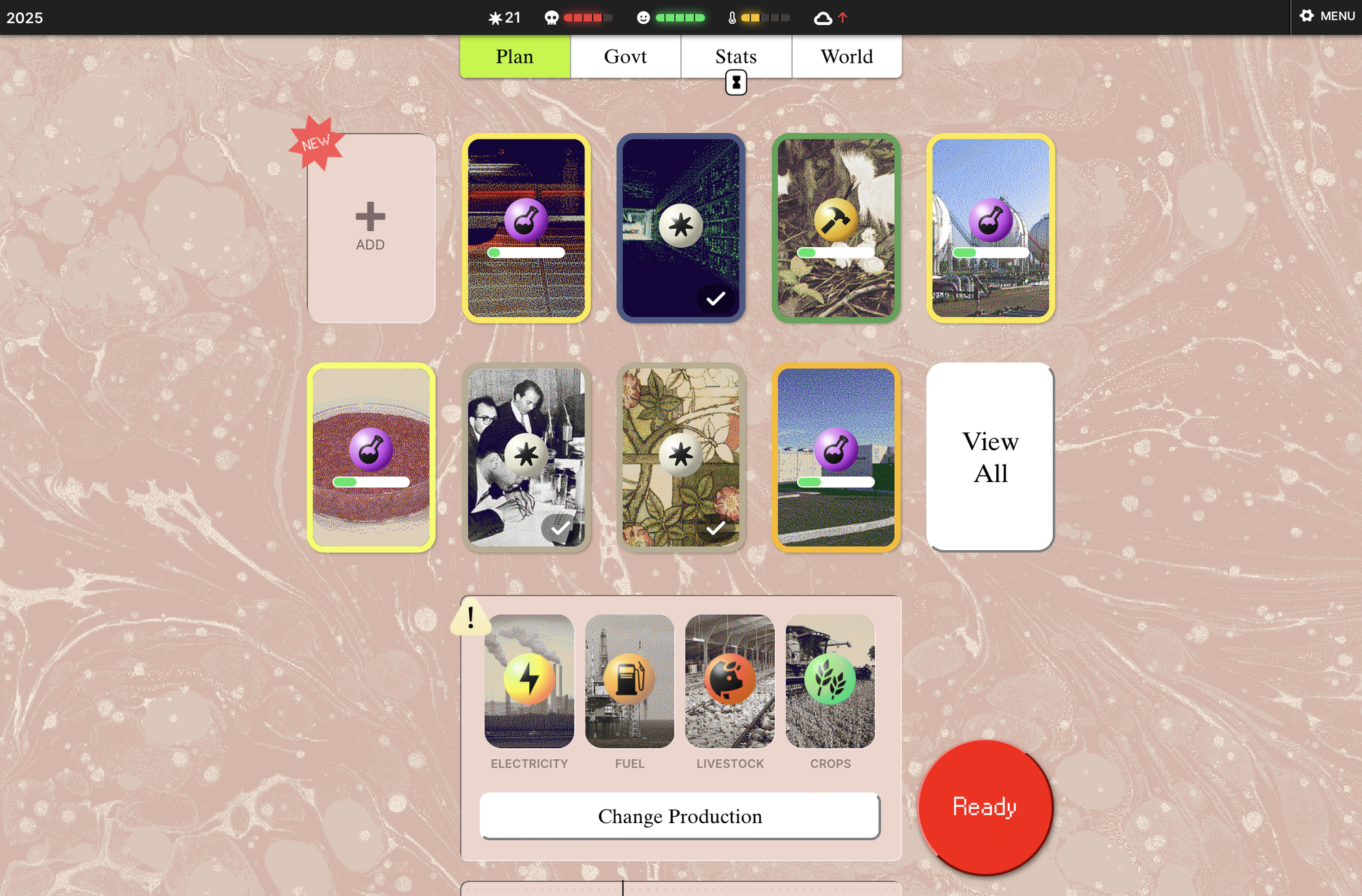
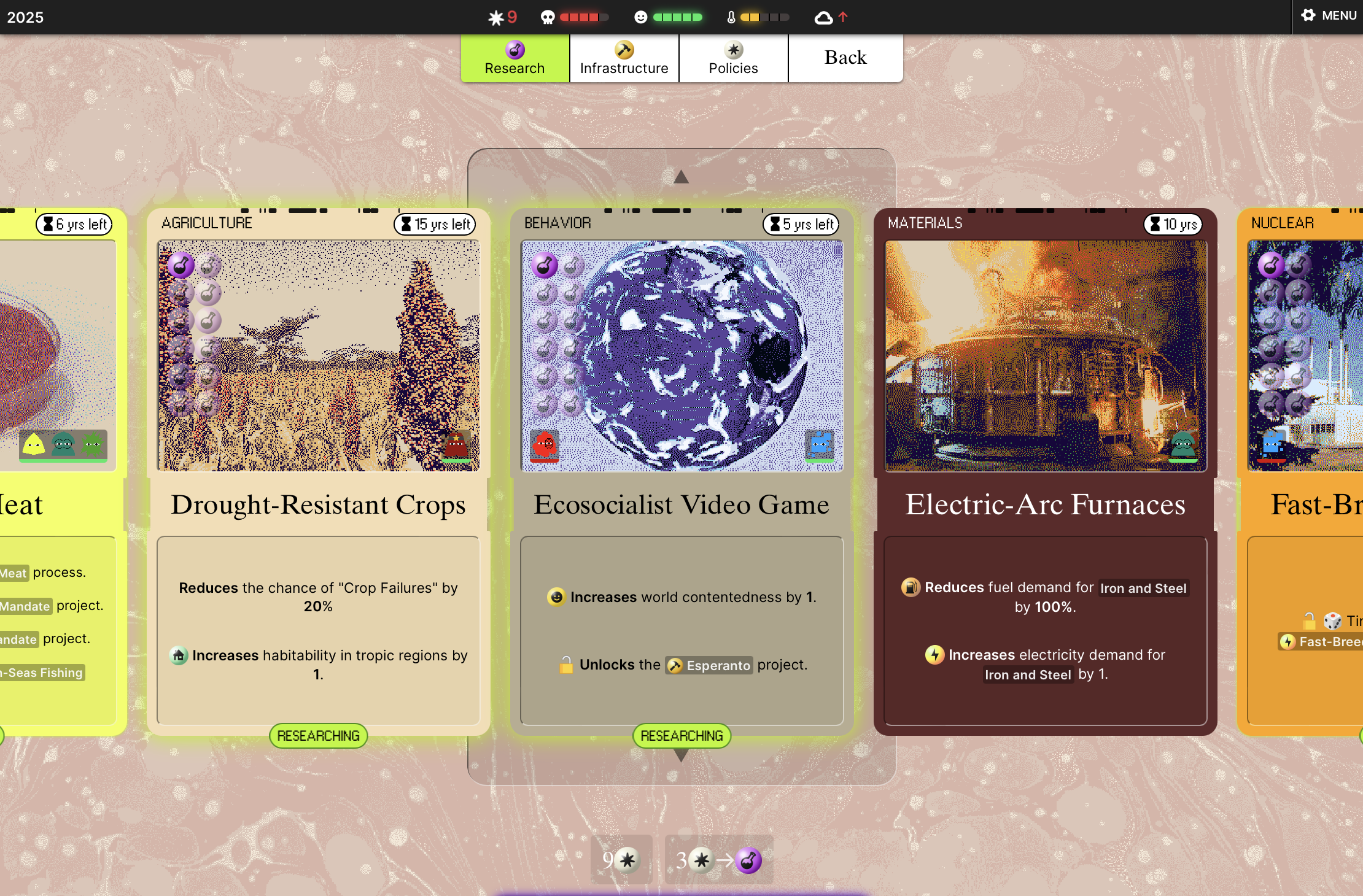
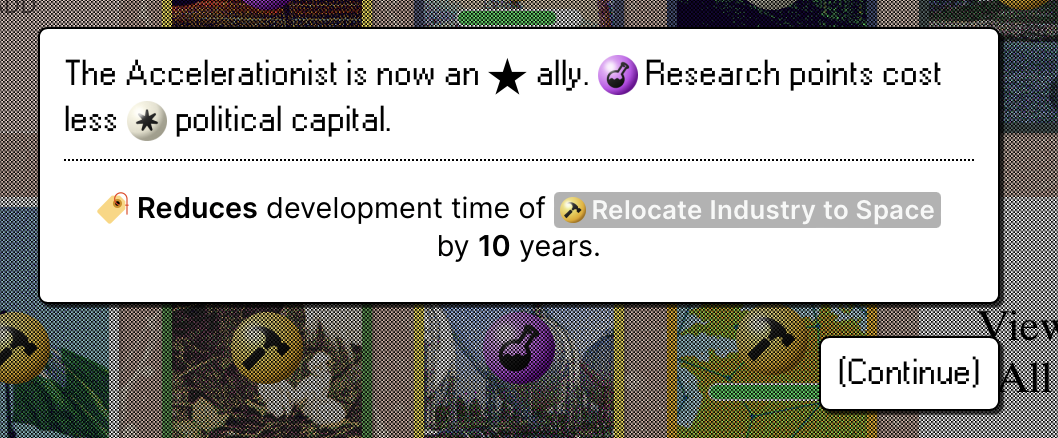
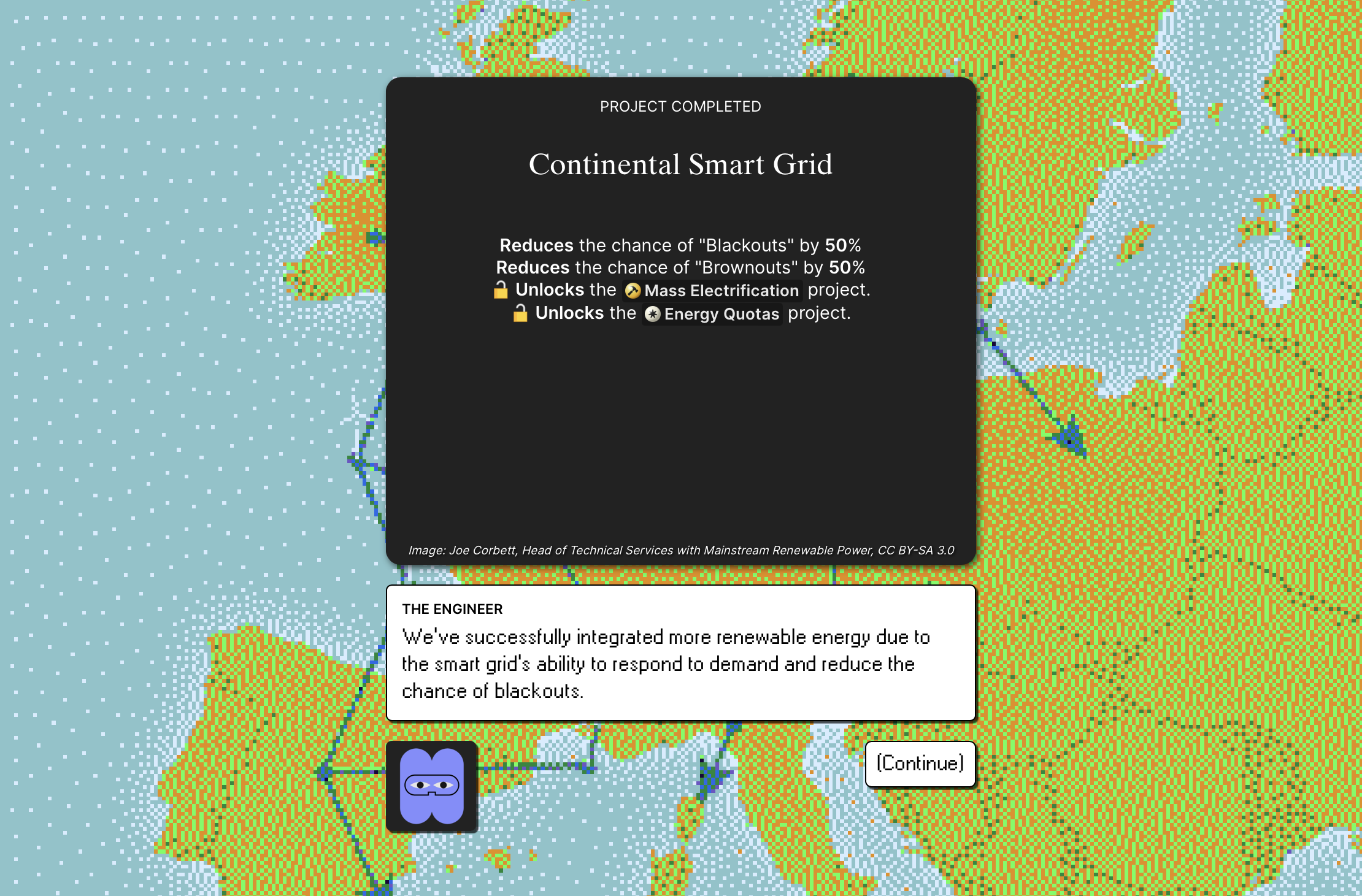
Assorted screenshots from the game Half-Earth Socialism
Over the course of several decades, you are charged with making difficult decisions on everything from legislation to research investments to painfully allocating sources of energy. The goal is to “bring warming down to below 1ºC, the extinction rate to below 20, emissions to below 0,” all while also maintaining political capital and keeping people content. 😬
Yeah… No easy task. I had to make lots of tradeoff decisions. But hey, I somehow managed to succeed:
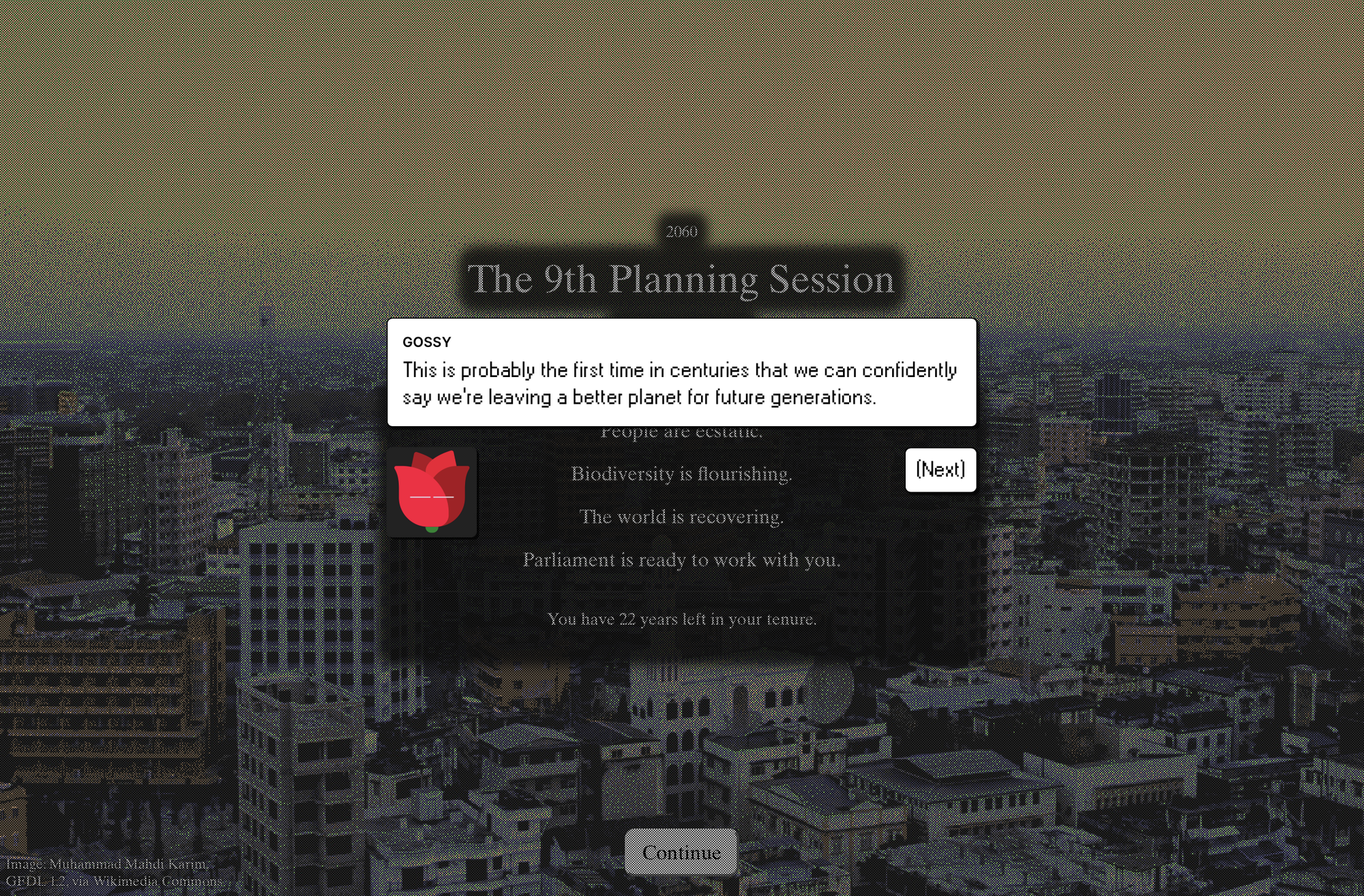
As a playful way to engage with very serious issues, and as a way to explore topics we should all have an awareness of—this ticks all the boxes.
Apparently, this is based on a book by the same name which outlines “a plan to save the future from extinction, climate change and pandemics.” After playing the game, I know I’d be interested in learning more about some of the things I was making decisions about.
Bento
Ooh. A self-reflection tool you can use to explore personal values or make decisions (big or small). It a 2x2 (or four quadrants) that help us “look beyond a short-term individualistic view.” The four quadrants are as follows:
What I as an individual want and need right now (Now Me)… Considerations of our future selves (Future Me), the people we rely on and who rely on us (Now Us), and the next generation (Future Us).
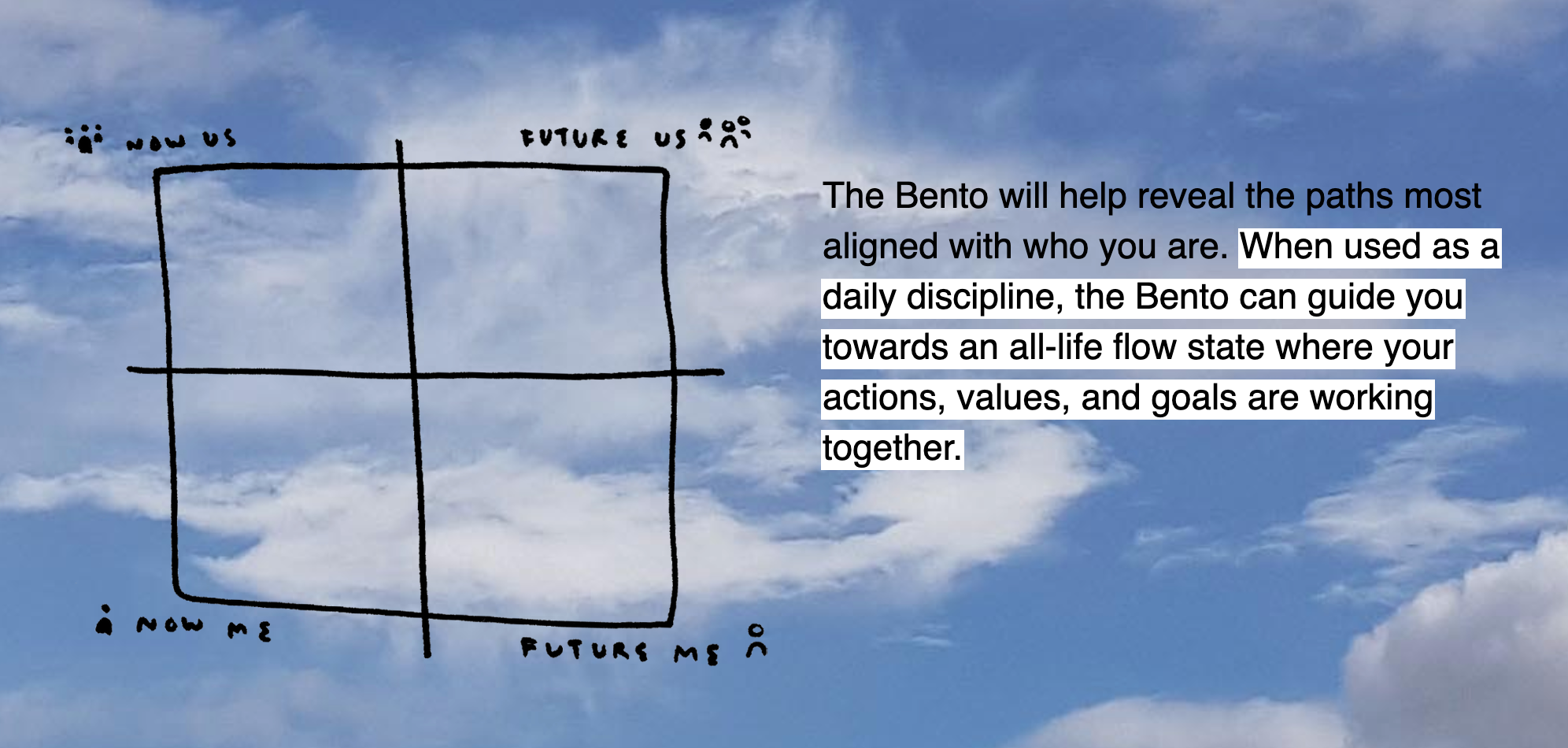
I especially like web-based tutorial created to explain what this is, as well as how and when to use it.
A Mathematician's Lament (Video Style!)
Check out Tibees’ video essay on Paul Lockhart’s classic paper A Mathematician's Lament. I’m sharing this for two reasons. First, I like the video essay format, as a way to bring an academic paper to life, making that content all the more accessible (though A Mathematician's Lament isn’t a particularly hard read). Second, the simple message contained within: Learning happens best when there’s a problem and a challenge to solve, when you’re enabled to discover on your own. For known information, how often do we teach the answer, when we could be framing this as an opportunity for discovery?
Linchpins
Here is a long read (22 minutes), worth setting some time aside for: “Sufficiently Advanced Technology, Software, & Sorcery.”
What starts off as a discussion of deconstructing magic tricks, proves to be an analogy for something far more rich: the sharing of knowledge and ideas. But not just any ideas, specifically ‘linchpin’ ideas—a single idea or fact—that once shared makes new solutions possible.

If you truly want to “10X” your creativity and problem-solving, it is important to not only scale up your own broad perspectives and multi-modal thinking, but also scale out at the same time by increasing the number of people interacting with–and thinking about–the problem. In other words, as the problems we aim to solve become harder and more complex; the value of diversity and teamwork becomes even greater.
Sometimes, a single word or phrase comes along that encapsulates a constellation of complex ideas. I love how this single word ‘linchpins’—as appropriated in this article—encapsulates something so critical.
Here are a few more choice quotes about the critical nature of linchpins:
There will always be gaps in our knowledge. Often these gaps are merely tactical or syntactic; “How do I do X with framework Y?” or “How do I apply construct A in language B?” These are known unknowns and rarely are these linchpins. The unknown unknowns, however, are more insidious and it is here that most linchpins live.
There are almost certainly business problems you could begin to solve today with the help of a single linchpin fact, but the challenge is finding it. We are almost never aware of missing linchpin knowledge. These are the unknown unknowns, residing in the complex domain.
And:
Filling in linchpin gaps requires looking at problems from new and unique perspectives. We gain these perspectives when we deviate from the course of deep specialization and explore ideas from outside of our core domain.
😍
***BONUS: Earthborne Rangers Second Printing (plus expansions) wraps up funding this week (in the next 48 hours!). If you’re looking for a table-sprawling, open world, narrative, solo (or cooperative), solarpunk adventure game—this is it! Oh, and consistent with the ethos of this game, the publisher is leading the way (within the board game industry) with their extraordinary commitment to sustainable production.



